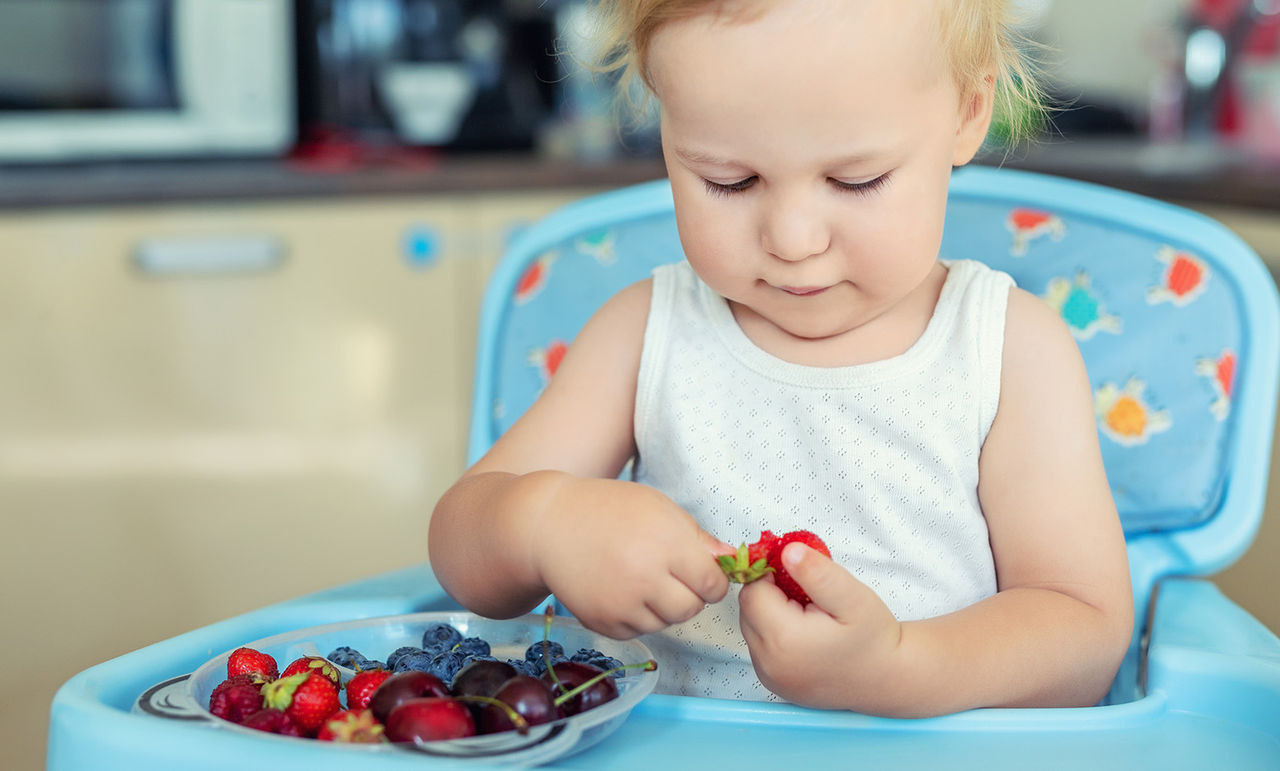- Vitamin A, vitamin D, zinc and iron are key nutrients to help establish a strong immune system
- Offer your child a diverse range of foods to encourage a balanced diet
- Try to feed your little one a rainbow’s worth of colours
Best foods for your child’s immune system development

Key points
Nutrition in early life can influence the development of the immune system for years to come. An immune system that is functioning well means your little one will be less likely to develop allergies and more likely to fight off infections like the common cold. When it comes to establishing a robust and resilient immune system, the first years – starting right from pregnancy – are critical for its development.
What to look for
There are key nutrients that we know help in establishing a strong immune system in early childhood. Vitamin A, which helps maintain immune function and vitamin D, which is required for maintenance of the immune system. There’s also zinc and iron – if you’re deficient in zinc you can have impaired immune responses, while iron deficiency can impair your overall immunity.
Ensure a varied, balanced diet
When it comes to nutrition, especially that of your child, it can be easy to get too caught up in specifics. The best advice for supporting your child’s immunity isn’t to focus on specific nutrients, but rather to look at their overall dietary intake and strive for a diet that is varied and balanced. This is why it’s so important that we try to feed our children a variety of foods from each of the food groups, every day. The more variety in their diet, the better – even if it’s only in small amounts. Offering your child a broad array of foods is the ideal way to expand their palate and ensure they are exposed to a diverse range of nutrients they need for immunity, growth and energy.
Focus on healthy, nutrient-dense options
Prioritise foods that are nutrient-rich. We can look at the foods in 5 areas:
- A rainbow of different vegetables, plus legumes and lentils where possible
- Plenty of fruits (including the washed skin) in a variety of colours
- Breads and cereals, focusing on wholegrains, as well as rice, pasta, couscous and quinoa
- Quality meats – like chicken and beef – and meat alternatives, like tofu
- Dairy sources – milk, cheese and yoghurt – and dairy alternatives
Bridging the gap
You can do everything you can to give your little one the ‘perfect’ diet and on some days they’ll eat it and some they won’t. Sometimes they’ll decide they don’t like it, sometimes they’ll be sick. All of these factors can make it tough to feed them the necessary volume of different foods each day. If your little one doesn’t eat much, a toddler supplement like Aptamil Gold+ Toddler Milk with Pronutra Biotik is a great way to give them essential vitamins and minerals they need for growth and development (when consumed with a healthy, varied diet). It’s fortified with 16 vitamins and minerals needed for growing bodies. Essentially, it’s a way to bridge the gap between what toddlers need and what they’re actually getting through food.
Make food fun
To get more of these whole foods into your child’s diet, try making mealtimes a fun, family experience. Ask your children to help you choose and prepare the food they’ll be eating. For example, try making pizza or wraps together so your little one can choose what to put on theirs. You can also try prepping fresh fruit and vegetables – like carrots, cucumbers and apples in the morning and make them available to snack on throughout the day. Kids can eat these with cheese, hummus or a little peanut butter (as long as there are no allergies at play).
Related pages

Get in touch with our Careline experts
When your little one is unhappy or unwell you want reliable support from a trusted source. Our Careline team of nutritionists, dietitians and midwives specialise in infant and child health, offering free nutrition, feeding and product information.
Every feeding journey is unique
Not every parent can produce breast milk. No matter what choice you make, we will support your unique feeding journey.
We at Nutricia believe in providing the best nutrition for babies, which is why we recognise breast milk is uniquely superior for babies as it provides many benefits. It is important that mums have a healthy diet to support breastfeeding. A decision not to breastfeed, or partial bottle feed, may reduce breast milk supply making it difficult to reverse. The cost and social implications of using feeding methods should be considered. Always seek professional advice about feeding your baby. Ensure formula is used as directed as improper use can affect baby’s health.
REMEMBER: The information on this page is general only. If you have any concerns about your baby’s poo or questions about constipation or any other health concerns, please speak to a healthcare professional, like a Pharmacist, GP or Maternal Child Health Nurse.



